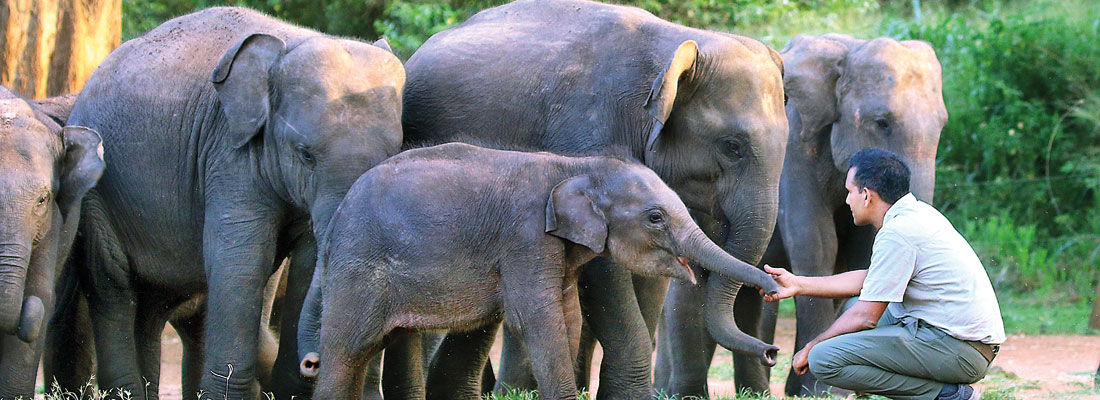Sunday Times 2
WNPS lecture: Bringing Them Back to the Wild
View(s):
Dr Malaka Abeywardana, Head Veterinarian – Elephant Transit Home, Udawalawe will deliver this month’s Nations Trust WNPS monthly lecture. He will speak on ‘Bringing Them Back to the Wild: Inside the Care and Release of Orphaned Elephants’. The lecture is on August 14 at 6 pm, at the Jasmine Hall BMICH.
In a nation famed for its elephants but scarred by rising human-elephant conflict, the Elephant Transit Home (ETH) tucked into the edge of the Udawalawe National Park is quietly changing the future of elephant conservation — one calf at a time.
Established in 1995 by Sri Lanka’s Department of Wildlife Conservation, it is today recognised as the world’s most successful elephant rehabilitation and rewilding programme. Its mission is to rescue orphaned elephants, raise them wild, and return them to their natural home – the wild.
Unlike conventional elephant orphanages, ETH operates on a strict hands-off policy. The focus is on restoring natural behaviours – socialisation, foraging, danger recognition – all essential for survival in the wild. To date, more than 180 have been successfully released. At least 18 have gone on to give birth in the wild – proof of ETH’s long-term impact.
Dr Malaka will offer a rare insider’s perspective on what it takes to raise and release a wild elephant. From midnight rescues and intensive care to tracking satellite-collared herds in Udawalawe, his work spans the full arc of an elephant’s second chance at life.
A wildlife veterinarian with over a decade of field experience, Dr Malaka has trained in Myanmar and Tanzania. The lecture will explore how science, policy, and compassion converge at ETH, offering a blueprint for ethical elephant conservation rooted in the wild, with insights into how calves learn to be elephants again — from their first steps in the “baby unit” to making friends, learning to forage, and eventually walking out of the gates for good.
“ETH is not just a facility. It’s a philosophy,” says Dr Malaka. “Every release is a step towards restoring balance in our ecosystems.”
The lecture is free and open to all.

